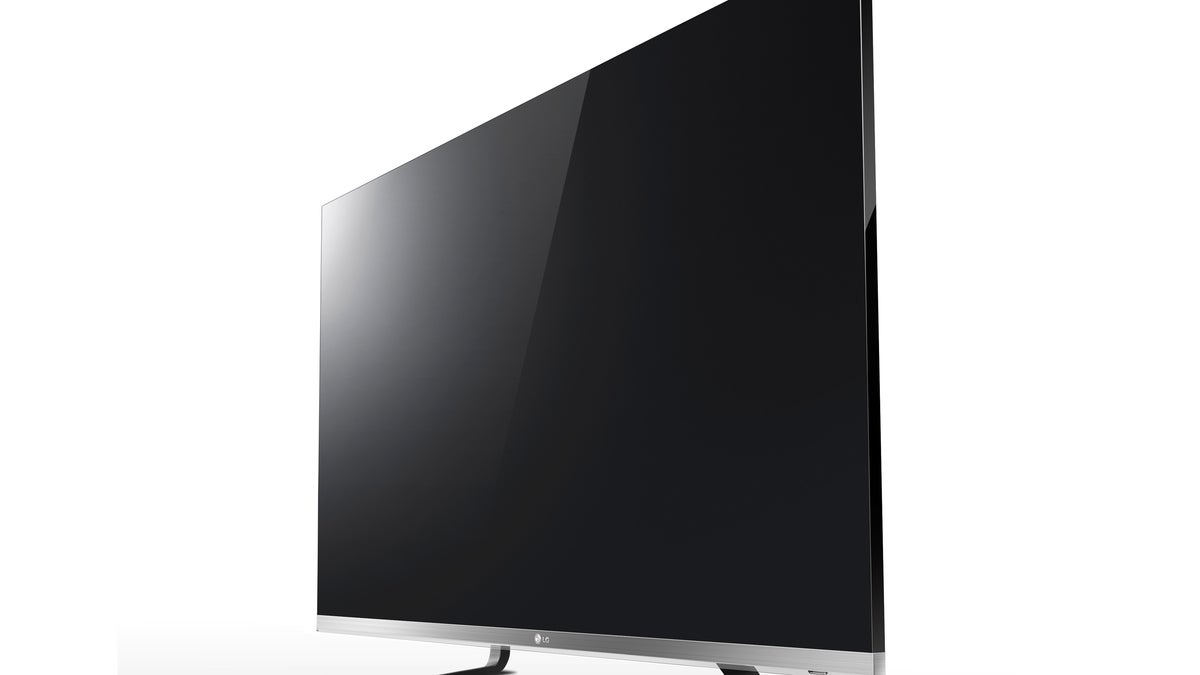Who will network your next TV? So far, the race is wide open
LG adds Google TV to the mix, but the Internet-connected television isn't any easier to digest. Who will be the first to offer a truly turnkey solution?

LAS VEGAS -- It's still too early to call the connected television wars in favor of one company or the other, but after LG's press conference this morning here at the 2012 Consumer Electronics Show, it's clear that there's no single path to the "third screen."
But it's getting better. Slowly.
The Korean manufacturer this morning expectedly announced several new models of televisions, including drool-worthy "Cinema Screen" models that offer bezels less than 5 millimeters in width. That's a welcome hardware innovation to be sure -- I love the bezel-less look on electronics as much as a Beverly Hills homeowner loves his infinity edge pool -- but the real question is which company will take the lead on presenting the connected television as a simple, one-step upgrade.
This isn't a trivial issue. As Internet-connected content consumption moves to the screen it's most suited for, there remains a dizzying array of different ways to get the Internet on your TV, none terribly intuitive. The most popular involves a third-party add-on: either a Roku (or similar) box or a gaming console such as Microsoft's Xbox 360 piping connectivity into an otherwise passive television. Manufacturers have been making connected TVs for awhile now, but only for the models with the highest price points. As with 3D, the trickle down effect of features is not yet complete.
In LG's case, the company is still selling five models of Blu-ray players, effectively pursuing two paths: insist that a consumer upgrade their television to be Internet-capable (via its Smart TV models), or offer a retrofit option through a Blu-ray player.
Too many hardware choices? That's problem number one. The second: there are too many ecosystems, too. With so many players (none truly dominant) in the TV space, it's becoming challenging for a consumer (and developer) to pick one with confidence. There's a serious need for natural selection to occur in the space.
Who will connect your future television: Microsoft, Google, Roku and Apple? Or LG, Samsung, Panasonic and Sony? Or some combination of both? As televisions and computers converge, there will be winners, losers and a dark horse or two -- just like in the smartphone and tablet space. (HTC, anyone?) That sorting is only beginning to occur, leaving developers in a lurch. The good news: it is occurring, and LG today joined Sony in throwing its weight behind Google TV.
Hopefully that decision will solve problem number three for LG, which is the unfortunate reality that there's little changed from last year's software offerings. LG's ecosystem is evolving as slowly as the hardware.
My CNET colleague Matthew Moskovciak elaborates:
When CNET was briefed on LG's 2012 home theater plans, we were told there would be little changes to LG's Smart TV platform in terms of services supported or the look of the interface. You'll be able to customize the main dashboard more, but otherwise it will look pretty close to last year's Smart TV portal. That's not necessarily a bad thing, since LG had the best overall streaming-content portal in 2011, but it's disappointing that LG hasn't put effort toward creating a better cross-platform content-browsing and -searching solution for the Smart TV platform.
We have yet to hear from Panasonic, Samsung and Sony, who will make their CES 2012 announcements later today. Nonetheless, my hope is that this all sorts out sooner rather than later so that customers, developers and investors can waste less time backing a failed candidate and more time accelerating development of a winner. Fewer accounts to manage, fewer gadgets to tuck beneath the TV stand, fewer puzzle pieces to fit together: that's a connected TV that everyone will love.
This item first appeared on ZDNet's Between the Lines blog under the headline "CES 2012: Who will connect your future television? With Smart TV, LG fails to break from pack."

